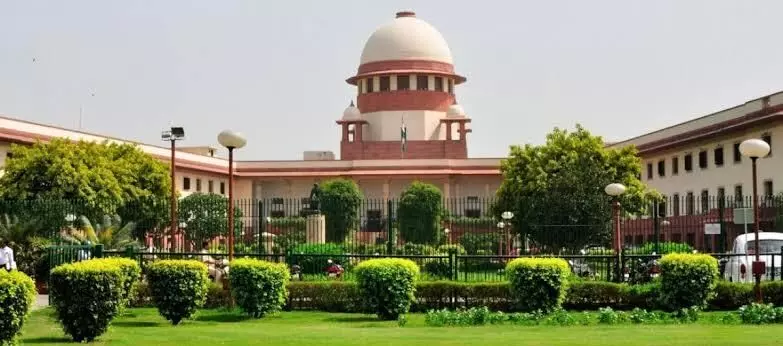
For how many generations reservations will continue, asks SC
text_fieldsNew Delhi: While hearing the Maratha quota case, a constitution bench of the Supreme Court on Friday asked for how many generations would reservations in jobs and education continue. The bench also raised concerns over "resultant inequality" in case the overall 50 per cent limit was to be removed.
"If there is no 50% limit, what is the concept of Article 14 then? What would happen to the resultant inequality and for how many generations will this continue?", the bench asked Senior Advocate Mukul Rohatgi, who was pleading for a reconsideration of the 50% cap imposed by the Inidra Sawhney judgment.
A 5- Judge Bench of Justices Ashok Bhushan, L. Nageswara Rao, S. Abdul Nazeer, Hemant Gupta and S. Ravindra Bhat was told by Senior Advocate Mukul Rohatgi appearing for Maharashtra, that the Mandal judgement on capping the quota needed a re-look in changed circumstances.
He said the courts should leave it to states to fix reservation quotas in view of the changed circumstances and the Mandal judgement was premised on the census of 1931.
Arguing in favour of the Maharashtra law granting quota to Marathas, Mr Rohatgi referred to various aspects of the Mandal judgement, also known as the Indra Sawhney case, and said the Centre's decision to grant a 10 per cent quota to people from an economically weaker section also breached the 50 per cent cap.
The bench said that 70 years have passed since independence and the states have been carrying on so many beneficial schemes and "can we accept that no development has taken place, that no backward caste has moved forward".
It also observed that the purpose of reviewing the Mandal judgement was that those who have come out from backwardness must be eliminated.
He referred to amendments made in the Constitution and said they are the indicators that the country has not reached "anywhere near the emancipation" it required for its backwards classes.
When a number of states have reservations exceeding 50 per cent and in this situation, it cannot be said that this is not "a burning issue" and does not require a relook after 30 years, he said.
The arguments in the case remained inconclusive and would resume on Monday.

















